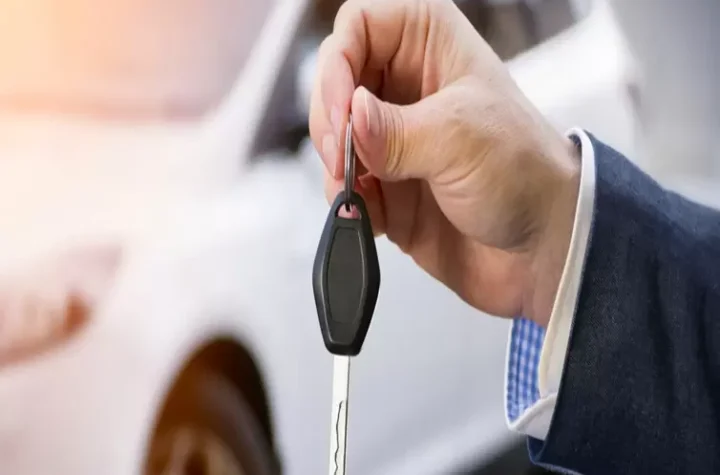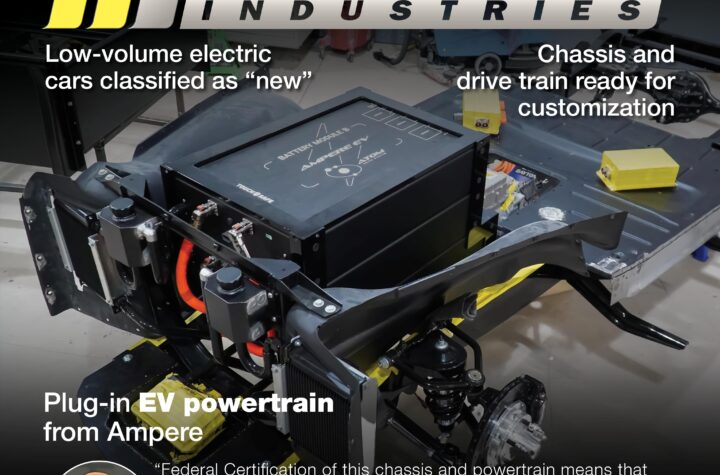
 NHTSA recently released a 300-page paper that listed all of the auto safety regulations instituted over the last 40 years and how many lives were saved by those regulations.
NHTSA recently released a 300-page paper that listed all of the auto safety regulations instituted over the last 40 years and how many lives were saved by those regulations.
Not surprisingly, seat belts finished first well ahead of collapsible steering columns, airbags and improved door locks. The report said that in 2002 alone, seat belts saved 14,500 lives.
One important safety technology missing from that study was Electronic Stability Control (ESC). ESC has been a hot topic in the industry of late as there has been a greater focus on reducing rollover accidents in SUVs.
Studies have shown that while rollovers account for only three percent of all crashes in North America, they result in 33 percent of all fatalities. SUVs and light trucks account for half of those rollovers (25 percent each) and passenger cars account for most of the other half (43 percent), with vans accounting for seven percent.
NHTSA data also shows that 89 percent of all crashes are the fault of the driver, so it only makes sense that if you can develop technology that makes better drivers, then you can reduce the number of crashes.
A 2004 IIHS study found that single vehicle crashes could be reduced by 41 percent and fatal crashes by 56 percent, assuming that all vehicles have ESC. That could have saved 7,000 lives a year, placing it second behind seat belts in NHTSA’s 40-year study.
“That’s an issue,” says Richard Golitko, marketing director Electronic Stability Control — ESP Chassis Division for Bosch, “When will all vehicles have it?”
Currently, about 11 percent of all U.S. vehicles are equipped with ESC. The announcements by several OEs that all SUVs will have ESC standard by the end of 2006 will help drive installation rates to 33 percent by 2008 as data shows. “What do you do about the rest of them?” says Golitko. “How do you get that message to consumers?”
Bosch thinks they have found a way. The company is launching ESCential, a program that will eventually develop a network of 250 certified safety instructors.
Instructors will set up shop in dealerships that sell vehicles with Bosch-supplied ESC systems and hopefully turn the sales associates into spokespersons for the benefits of ESC. Golitko says that Bosch also hopes to get dealers excited enough about ESC that they’ll make it a priority when ordering new vehicles.
“We’re really doing a sales job to them, because if it’s on the lot they’ll sell it. And if they sell it once, they’ll resell it. So we’re trying to kind of kick-start that whole cycle where they start to stock the vehicle.”
The theme of the project is, “No car without ESC.” With SUVs “a done deal,” Golitko says that Bosch will focus its attention on driving ESC onto the 43 percent of cars involved in rollovers. But this proven safety technology comes at a price. Systems that cost the OEM from $150 to $200 are sold to the consumer for anywhere from $300 to $750 per vehicle, as a stand-alone option, though most systems are still sold as part of safety and handling packages.
While that may not be much to add to an SUV, large pickup, or a high-volume sedan, it’s a pretty large chunk of change to hang on a small vehicle with little or no profit margin.
Golitko says that the hardware that goes into these systems is becoming a commodity. “As these guys compete in safety technologies,” he adds, “the prices are going to come down.”
Bill Rinna, manager of North American Component Forecasts for CSM Worldwide, says that while the cost of the stability system is coming down, it still doesn’t make sense for a small vehicle. ABS (an essential component for ESC) is still an option on most small cars (and not available on many fleet vehicles.) ABS can add another $80 to the cost of the vehicle.
Still Rinna thinks that Bosch is on the right track with the program.
“Once a consumer can see the difference between having stability control and not having stability control,” Rinna says, “I think that would be a big selling point.
“They’re trying to address the issue of letting consumers know what that difference is. This is one way for them to address that.”















More Stories
How to Choose the Best Mobile Car Locksmith in Las Vegas
Ensuring Accuracy and Accountability With AI-Powered Time Tracking Software
The Relationship between Defective Airbags and Car Accidents